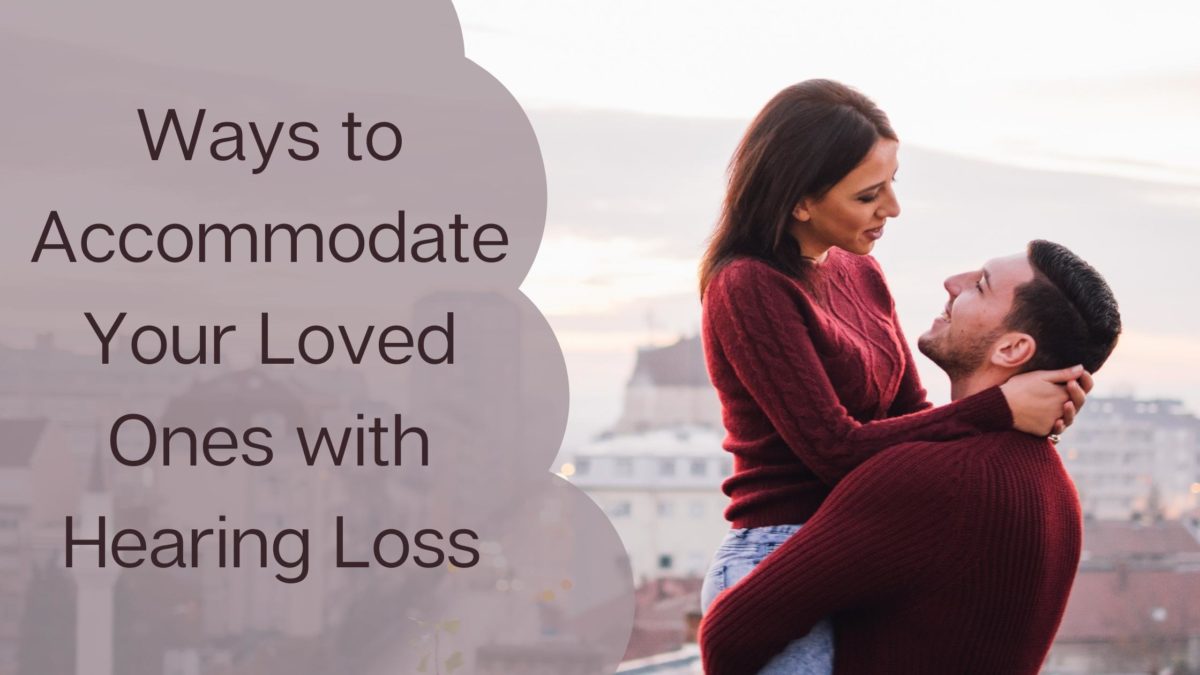A diagnosis of hearing loss can be emotionally devastating not just to the person receiving the information about themselves, but can tremendously damage close relationships with loved ones, too. Unless you have personally experienced hearing loss, it is hard to understand exactly the toll it can take on a person.
Your loved one has to work extremely hard to participate in a very verbal world, one that might have been effortless just a few years before. Moreover, the emotional isolation and damage to emotional health that often accompanies hearing loss can be profound. As they deal with their hearing loss diagnosis, they might seem to exhibit challenging traits that make connecting with them difficult, like anger or defensiveness and sometimes even depression.
But you can play a role in easing their path towards acceptance of their diagnosis. Being a little more patient and empathetic can go a long way in making your loved one feel supported in their new hearing reality.
Be mindful of their difficulties and adjust
When spending time with your loved one, remember that there are ways you can interact that make communicating easier. Always face them in conversation so that they can see your mouth and facial expressions to help decode what you’re saying. Never turn your back to them when you are talking or try to shout from another room.
Speak just slightly slower than normal and don’t shout, but do enunciate clearly. If they ask you to repeat yourself, try rephrasing instead. Because hearing loss happens along frequencies, the words you choose matter. You can try a different set of words that might fall more within their range of hearing.
Let them talk about their hearing loss
Ask them about their hearing loss in a compassionate way if they bring it up or at least be a safe space for them to talk about their experience. We are quick to pivot our conversations away from uncomfortable topics. And this can come from really good intentions in which we want other people to feel reassured and less self-conscious. This can make us tell comforting lies like, “Your hearing loss is no big deal!” or “I didn’t even notice!”
Instead of comforting your loved one, you might be silencing them from talking about their hearing loss. They deal with the reality of their hearing loss on a daily basis and it can make them feel loved and seen to share their experiences or speak candidly about their hearing loss with you.
Make an effort to include your loved one
A common experience among people with hearing loss in a healthy hearing crowd is that they feel left out. When people without hearing loss are in the majority, they can forget that not everyone has the same verbal ease and orientation toward group conversations, which can be particularly difficult when hearing health is a challenge.
Notice how your loved one is engaging in conversations at a group or family gathering. If they seem withdrawn or isolated, make an effort to share a conversation with them in a quiet space. Sometimes, we don’t even need to be in direct conversation with a loved one in order to feel connection. Sitting quietly next to them can be a great way to lend emotional support.
Other means of inclusion
Inclusion can also mean accommodating them in other hearing activities. If you are collectively watching a television show or a film, use the captioning function so that the volume level doesn’t have to be on blast in order for them to enjoy the program.
If someone does shout something or make a joke from another room, repeat it slowly and directly to your loved one for their benefit. Make sure that they have as much information as the other people in your group, the ones without difficulty hearing.
Help them get help
The most influential factor that encourages people with hearing loss to seek a diagnosis and treatment is the urging of family members and loved ones. If you think a dear friend or family member is experiencing hearing loss, talk to them about it. If you have the capability, offer to get your hearing tested together so that confronting hearing loss doesn’t feel so intimidating. A fundamental quality of human life is that we need each other and in the end, being a support system for a loved one can strengthen your relationship with one another.

